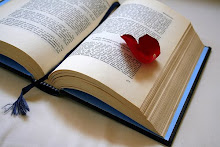This summer is supposed to be all about my health. Physical and mental. And with me, it turns out, the two are incredibly and irrevocably linked. So along with what feels like constant monitoring from my doctor (and entire family, but they nag because they love – or at least that’s what I’m going to keep telling myself), attempts at healthier eating, and attempts at exercise, I am working hard to relax and learn to control my anxiety and stress.
So life makes me terribly, terribly anxious and stressed out. In this day and age that hardly makes me unique, and that’s kind of where I’m heading with this post. There are entire industries that take advantage of people like me.
I see a therapist every week now that I’m home and I think it’s helping me identify certain aspects of my thinking/behavior that need to change for me to be healthier mentally (and therefore physically). Even if I don’t see the connection between every question she asks me, or everything she asks me to think about during the week, I am willing to believe that as a therapist and, possibly, just as an outside observer, she can identify things that I cannot. One thing we’ve been talking about a lot is positive thinking. And this brings me to the actual point of this post (and the tie-in with the general theme of my blog although I maintain my it’s-my-blog-and-I’ll-write-what-I-want-thankyouverymuch mentality):
I’m reading a self-help book: The Power of Intention by Wayne Dyer.
It’s odd. For some reason I’m much more embarrassed about reading a self-help book than admitting that I see a therapist, even though it seems like there’s more of a stigma connected with therapy [insert Scrubs quote here: “my father says therapy is for people with more money than problems.”] than self-help books. That stigma against therapy may quickly be falling to pieces in today’s society, but my feelings of shame at owning (and reading) a self-help book still seem a bit bizarre or misplaced given the situation.
I acknowledge that these books really do help people. Or help people help themselves. Or whatever. But I just can’t help but roll my eyes at the idea of following the advice of someone who makes their living telling people how to change their lives for the better. When these people put out book after book year after year, doesn’t it make people wonder if maybe they’re rationing their wisdom or something? At least part of that, I think, is based upon the fact that I don’t think someone can give advice on how to live an individual life without knowing the details of said individual life. Yes, some things are basic. Some of the advice he offers can be applied universally. Some. Not all. Life is complicated, and it feels like self-help books don’t realize it.
Once I get past all the stuff that makes my eyes roll so much they might just fall out of my head, I do see what Dyer is getting at in The Power of Intention. So much of how he writes and what he writes bothers me, but at the core of everything, I do see what he means. I’m barely 50 pages in, so I can’t offer too much of a review right now, but given the title of the book and what I’ve read so far, it seems like Dyer is trying to get his readers to see that the way we think about our actions and the way we approach situations both have a lot to do with how we actually act in these given situations and, therefore, their results.
In the book, ‘Intention’ is some sort of overarching semi-spiritual power. I find this approach mildly off-putting (spirituality is often a huge part of the self-help industry, and that might be part of my issue with it. I’m not anti-spirituality, just anti-your-life-will-only-be-better-if-you-follow-my-spiritual-path-…ity), but if I distance myself from the actual words and the literal, intellectual part of it and just focus on the bigger picture, I see that Dyer might have a point.
Given my compulsive need to finish every book I read, I do intend to finish The Power of Intention. That being said, it may take me a while and you probably won’t see a full review of it. I’m going to read it. I’m going to take what I will from it. And then I’m going to move on.
I don’t see my feelings on self-help books changing radically after finishing this book, but you never know. I think there’s a good chance that something about self-help books will always rub me the wrong way, but I won’t condemn them completely, especially if they do offer guidance to those who need it and are unable or unwilling to seek it elsewhere.
Buddha said that “peace comes from within,” but sometimes we might just need a little bit of help or guidance to find it.
1 day ago

No comments:
Post a Comment